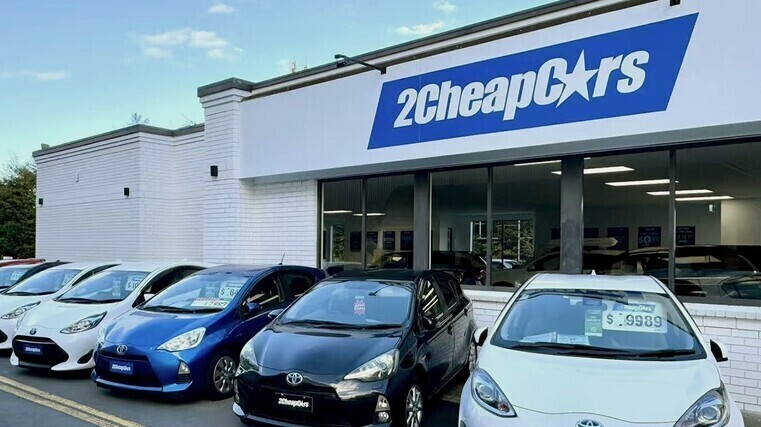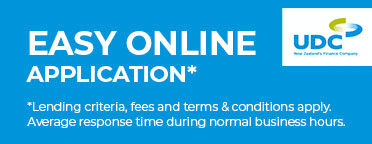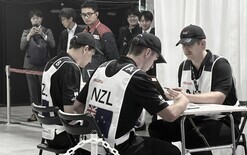CCS hurts 2 Cheap’s finances

2 Cheap Cars has announced its net profit after tax (NPAT) fell to $1.01 million for the half year to the end of September 30, a drop of 39.5 per cent from $1.67m in the same period last year.
Revenue and income were down over the same timeframe, slipping five per cent from $42.01m a year ago to $39.77m, as vehicle sales tumbled 13 per cent to 3,604 units.
The company says its gross margin in the latest six-month spell decreased by two percentage points to 19 per cent – down from $9.01m to $7.86m in dollar terms – mainly because of the impact of carbon tax costs under the clean car standard (CCS).
2 Cheap Cars’ announcement to the NZX on November 6 also states the decrease in NPAT was primarily because of the $700,000 after-tax impact of the CCS, “as other favourable and unfavourable movements largely offset each other”.
“The first half of the 2026 financial year was challenging, with continued economic weakness, margin pressure, low immigration numbers and high regulatory costs directly impacting the used-vehicle industry, and the cost-of-living crisis weighing heavily on consumer confidence,” the company says.
It notes that the revenue decline reflects lower sales volumes, but this was partially offset by improved retail pricing and stronger finance and insurance penetration.
“Finance penetration rose to 32 per cent, up five percentage points, while insurance penetration reached 41 per cent, supported by lower interest rates and effective sales execution.”
The group adds that it continues to maintain a strong balance sheet, with $4.6m in cash, stable debt levels and inventory carefully managed to align with current demand.
The board has declared an interim dividend of 2.15c per share.
Market overview
2 Cheap Cars says weak economic growth, subdued consumer confidence and a significant reduction in net migration collectively reduced imported used vehicle sales volumes in HY26.
“The CCS has exacerbated this situation through increased complexity and costs for used vehicle importers due to shifting compliance thresholds and rising carbon credit costs,” it opines.
“While overall trading conditions remain subdued, several external factors have provided partial offsets.
“Lower interest rates are improving vehicle affordability through reduced finance costs, while a strong New Zealand dollar against the Japanese yen has supported more favourable import pricing.
“There is, however, significant international competition for late-model, fuel-efficient Japanese vehicles that is continuing to drive up procurement costs and tighten supply.”
The company notes it is beginning to benefit from increased local sourcing opportunities through direct purchases from the public, alongside trade-ins, which help to reduce exposure to carbon credit obligations and support a more balanced inventory mix.
In response to the continued difficult market conditions, 2 Cheap Cars says it has made a number of operational adjustments to “enhance flexibility and strengthen long-term capability”.
This includes recruiting a brand and marketing manager to accelerate investment in direct-to-consumer channels and David Sena, chief executive officer, spending more time on the ground in Japan to strengthen the capability of the local procurement team.
“As vehicle volumes remain volatile, the company has reassessed its compliance insourcing strategy and reverted to a hybrid compliance model, combining in-house expertise with selected outsourced suppliers to avoid unnecessary overheads and improve capacity management and responsiveness,” the announcement states.
Outlook
The company concludes its announcement by saying it expects market conditions to remain challenging through the second half of the current financial year.
“While 2 Cheap Cars will likely benefit from easing interest rates and the contribution from new flagship dealerships, these positives are being outweighed by the broader economic and regulatory environment,” it adds.
“The pace of recovery in demand is expected to remain gradual, and trading in the second half of FY26 is not anticipated to materially exceed the first half.”
As a result, the group continues to expect full-year profitability to be lower than in the 2025 financial year
Michael Stiassny, chairman, notes that while the business is performing solidly, the impact of CCS compliance costs should not be underestimated.
“As recently highlighted by the Imported Motor Vehicle Industry Association, the CCS is creating an unintended consequence whereby increasing compliance costs are making used imported vehicles unaffordable for many households who are then forced to retain older, higher-emitting vehicles,” he explains.
“We continue to control what is within our power to control. The business remains tightly managed, with a disciplined focus on efficiency, cash generation and balance sheet strength.”





